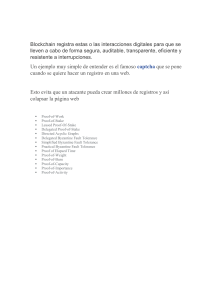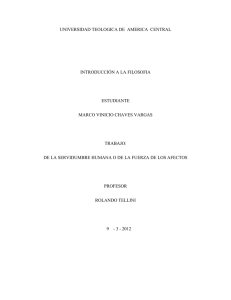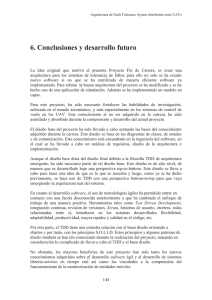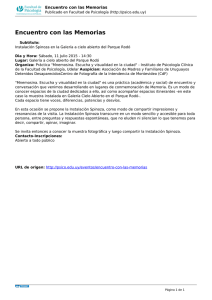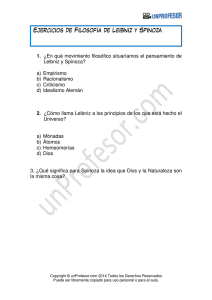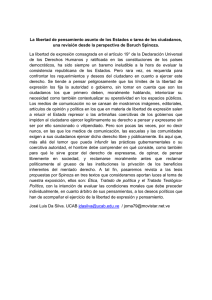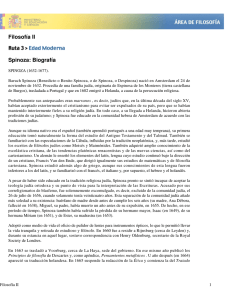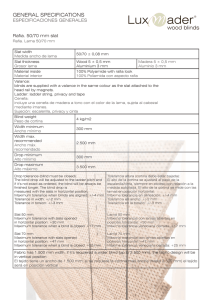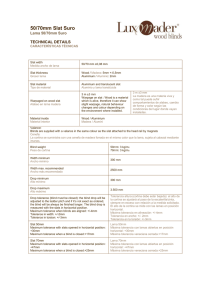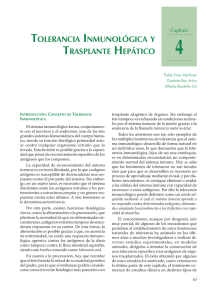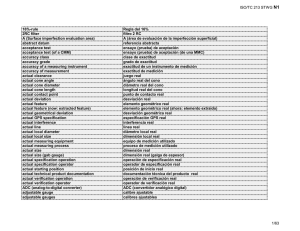María Luisa de la Cámara
Anuncio
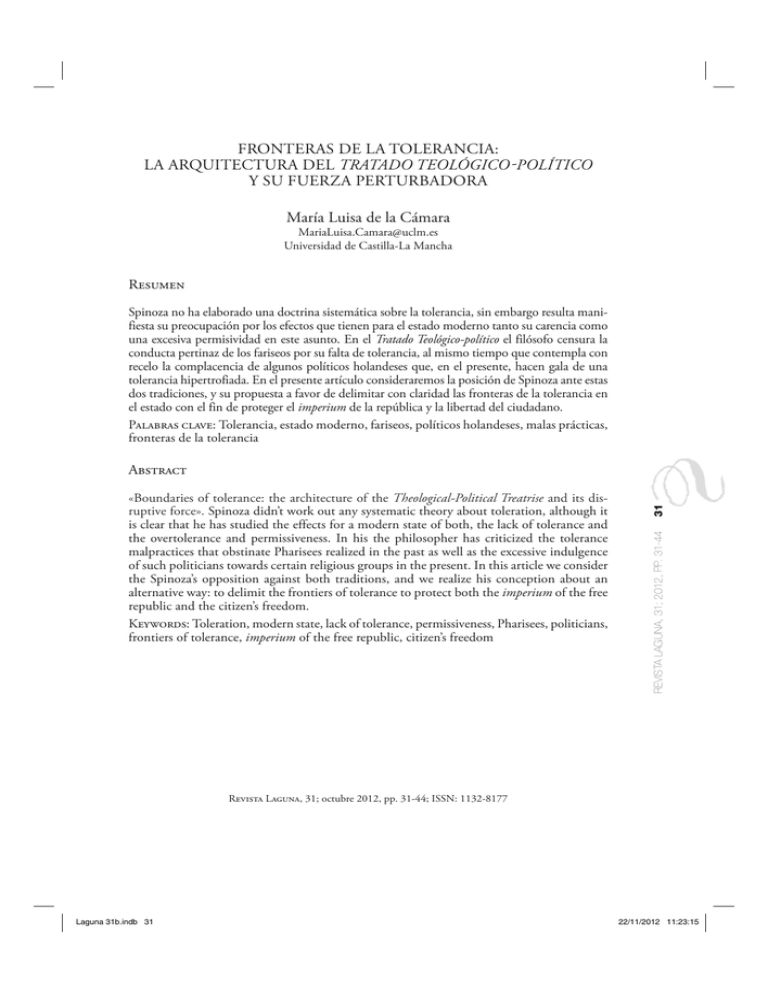
FRONTERAS DE LA TOLERANCIA: LA ARQUITECTURA DEL TRATADO TEOLÓGICO-POLÍTICO Y SU FUERZA PERTURBADORA María Luisa de la Cámara MariaLuisa.Camara@uclm.es Universidad de Castilla-La Mancha Resumen Spinoza no ha elaborado una doctrina sistemática sobre la tolerancia, sin embargo resulta manifiesta su preocupación por los efectos que tienen para el estado moderno tanto su carencia como una excesiva permisividad en este asunto. En el Tratado Teológico-político el filósofo censura la conducta pertinaz de los fariseos por su falta de tolerancia, al mismo tiempo que contempla con recelo la complacencia de algunos políticos holandeses que, en el presente, hacen gala de una tolerancia hipertrofiada. En el presente artículo consideraremos la posición de Spinoza ante estas dos tradiciones, y su propuesta a favor de delimitar con claridad las fronteras de la tolerancia en el estado con el fin de proteger el imperium de la república y la libertad del ciudadano. Palabras clave: Tolerancia, estado moderno, fariseos, políticos holandeses, malas prácticas, fronteras de la tolerancia REVISTA LAGUNA, 31; 2012, PP. 31-44 «Boundaries of tolerance: the architecture of the Theological-Political Treatrise and its disruptive force». Spinoza didn’t work out any systematic theory about toleration, although it is clear that he has studied the effects for a modern state of both, the lack of tolerance and the overtolerance and permissiveness. In his the philosopher has criticized the tolerance malpractices that obstinate Pharisees realized in the past as well as the excessive indulgence of such politicians towards certain religious groups in the present. In this article we consider the Spinoza’s opposition against both traditions, and we realize his conception about an alternative way: to delimit the frontiers of tolerance to protect both the imperium of the free republic and the citizen’s freedom. Keywords: Toleration, modern state, lack of tolerance, permissiveness, Pharisees, politicians, frontiers of tolerance, imperium of the free republic, citizen’s freedom 31 Abstract Revista Laguna, 31; octubre 2012, pp. 31-44; ISSN: 1132-8177 Laguna 31b.indb 31 22/11/2012 11:23:15
